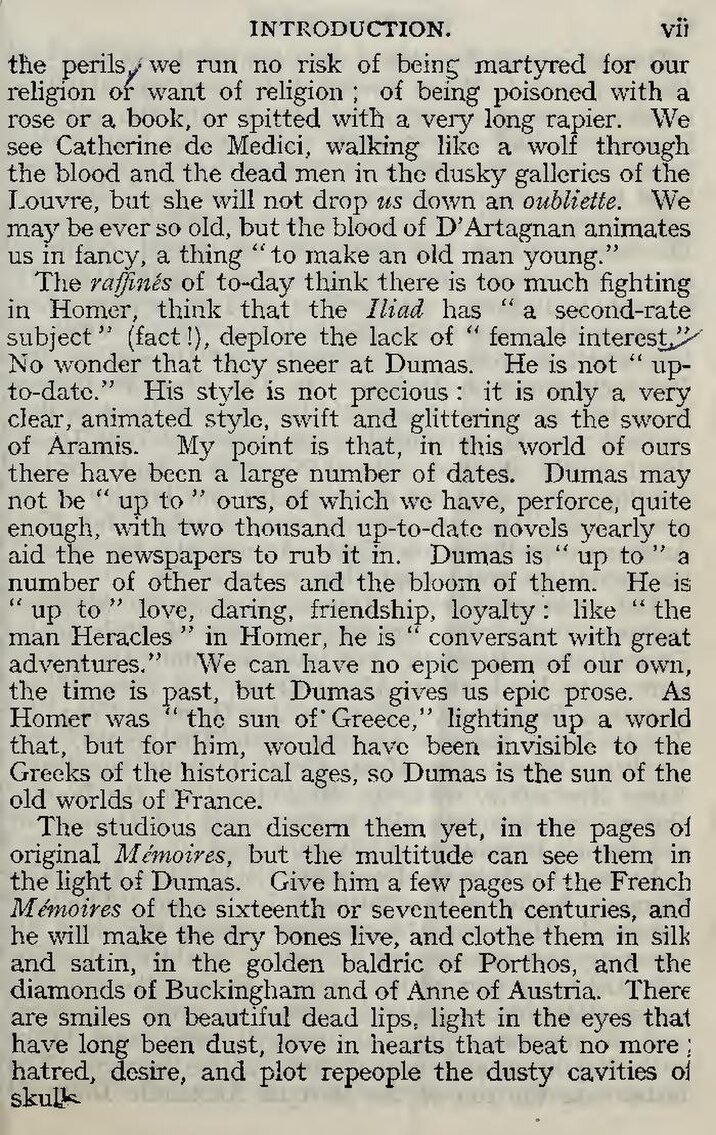the perils, we run no risk of being martyred for our religion or want of religion; of being poisoned with a rose or a book, or spitted with a very long rapier. We see Catherine de Medici, walking like a wolf through the blood and the dead men in the dusky galleries of the Louvre, but she will not drop us down an oubliette. We may be ever so old, but the blood of D'Artagnan animates us in fancy, a thing "to make an old man young."
The raffinés of to-day think there is too much fighting in Homer, think that the Iliad has "a second-rate subject" (fact!), deplore the lack of "female interest," No wonder that they sneer at Dumas. He is not "up-to-date." His style is not precious: it is only a very clear, animated style, swift and glittering as the sword of Aramis. My point is that, in this world of ours there have been a large number of dates. Dumas may not be "up to" ours, of which we have, perforce, quite enough, with two thousand up-to-date novels yearly to aid the newspapers to rub it in. Dumas is "up to" a number of other dates and the bloom of them. He is "up to" love, daring, friendship, loyalty: like "the man Heracles" in Homer, he is "conversant with great adventures." We can have no epic poem of our own, the time is past, but Dumas gives us epic prose. As Homer was "the sun of Greece," lighting up a world that, but for him, would have been invisible to the Greeks of the historical ages, so Dumas is the sun of the old worlds of France.
The studious can discern them yet, in the pages of original Mémoires, but the multitude can see them in the light of Dumas. Give him a few pages of the French Mémoires of the sixteenth or seventeenth centuries, and he will make the dry bones live, and clothe them in silk and satin, in the golden baldric of Porthos, and the diamonds of Buckingham and of Anne of Austria. There are smiles on beautiful dead lips, light in the eyes that have long been dust, love in hearts that beat no more; hatred, desire, and plot repeople the dusty cavities of skulls.
